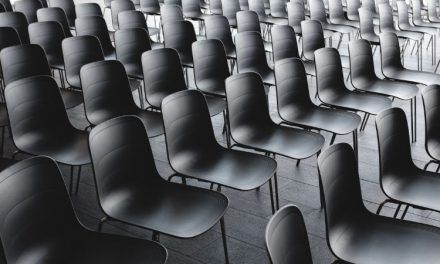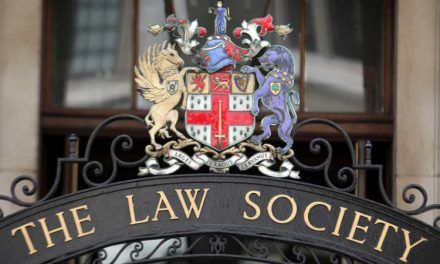
Laurence Harris completed the BPTC in 2019, having been awarded the Queen’s Scholarship by the Middle Temple in 2018. He is currently working as a paralegal on a public inquiry and hopes to commence a criminal pupillage in 2021.
Qualifying Sessions (QS) almost certainly make my top five list of eccentricities at the Bar. Part of their charm is how they seem to focus on the future of the profession, whilst simultaneously remaining anchored in the past, by ever emphasising the critical importance of the professional community which, for centuries, has characterised the independent Bar. Unsurprisingly, QS have had to reorient to modern social conditions, and whilst the stalwarts of dinners, moots, and advocacy weekends endure, the Inn has recently seen the birth of novel forms of QS.
The Sherrard Conversations are one such development. These QS take the form of a 45-minute long interview with a legal (or quasi-legal) professional, followed by a Q&A and discussion. This is of particular help during the long, dark pupillage application season, when students are often short of time and energy. In addition, a Sherrard Conversation is considerably cheaper than a dining QS, and therefore offers a small but important contribution to solving the problem of accessibility at the Bar.
Prior to lockdown, I had attended a Sherrard Conversation between Professor John Rubin (Albert Coates Professor
of Public Law and Government, UNC Chapel Hill) and Emma Hughes (MTSA President 2017/18); a comparative perspective on contemporary criminal justice issues.

I later observed Master Bernard Richmond interview Master John Cooper about his career at the criminal bar and his commitment to a radical model of advocacy. On Wednesday 20 May 2020, I attended my twelfth and final QS: ‘The Key to Ending Homelessness’, a Sherrard Conversation between Mike Hyden and Master Araba Taylor. Mr Hyden is the co-founder of JustUs, a charity which seeks to ensure that homeless people in Bedford have access to the statutory support to which they are entitled. Master Taylor is a Deputy District Judge, a former housing law practitioner, and a trustee of JustUs.
Whereas previous Sherrard Conversations had been held in the Sherrard Room, this QS was hosted on StarLeaf. The event proceeded smoothly from a technical perspective, with the only observable exception being my own inability to input successfully the access code for the meeting. The famously strict rules on QS punctuality were evidently relaxed, as despite missing the first two minutes, I was still awarded the QS. (I remain grateful for the leniency!)
Mr Hyden began by setting out exactly how JustUs provided advocacy services to its clients. He argued that the biggest challenge in the battle against homelessness is not substantive housing law, which, he averred, is excellent. Instead, he suggested that ‘gatekeeping’ from overstretched local councils was the overriding barrier to adequate housing; a problem not best combatted by legal pressure, but rather by frontline workers ‘pushing the problem back up the hill’ and trying to effect change on a political level. Mr Hyden predicted that JustUs will still be required in five years’ time, short of a paradigm shift in the public toleration of homelessness. In response to a question about how the charity ‘advocates’ for its clients, Mr Hyden emphasised a truth espoused by many barristers, which is that regardless of the outcome, there is immense value for the client in simply having someone stand up for them. Master Taylor encouraged all in attendance to consider using their skills as lawyers and advocates with frontline charities and recommended ‘Bar in the Community’ as a platform from which to do so.
After an hour of intense concentration, it was a great shame not to be able to take any well-earned drinks and/ or nibbles. Any attempt to enforce the usual ‘Rule of Three’ (the requirement that a student not leave a QS until they have spoken to at least three people not previously known) would have required a truly heroic feat of organisation. Nevertheless, despite the absence of post-interview discussion, the tangible sense of professional community that characterises QS was not lost. As I sat in my kitchen, wearing a collared shirt for the first time in 10 weeks, the knowledge that 75 other members of Middle Temple were doing the same became a powerful symbol of the perseverance of the Bar in these unusual times, and a poignant reminder that Domus is far more than simply a collection of buildings in EC4.
If you have an idea for a potential Sherrard Conversation and would like to get involved please contact Education@middletemple.org.uk




